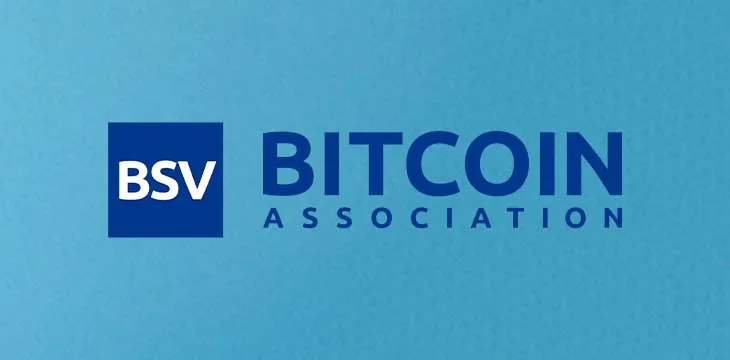|
Getting your Trinity Audio player ready...
|
This letter, penned by Bitcoin Association for BSV Blockchain Policy Director Bryan Daugherty, was delivered to New York Governor Kathy Hochul, who recently signed legislation that places a two-year moratorium on Proof of Work mining operations in New York State.
Dear Governor Hochul,
As Public Policy Director at the Bitcoin Association, I want to both congratulate you on, and express concerns about, the signing of A7389C/S6486, which would enact a moratorium on certain ‘cryptocurrency’ mining operations and require an environmental review.
The recent collapse of FTX has shined a spotlight on what our association has been saying for a long time—government should regulate the ‘crypto’ casino out of existence while unleashing the power of blockchain. This is a critical moment for policy-makers to dig more deeply into the relative benefits and costs of the disruptive yet promising power of blockchain to store data. It is with that perspective that we want to share perspective on the aforementioned legislation.
We understand the desire to pause the most energy-intensive mining operations while the State conducts a more thorough environmental review. However, I want to implore your administration to ensure that such a review takes into account a more holistic view of proof-of-work mining, most specifically the relative utility and throughput capacity of many different ‘cryptocurrencies’ and not just Bitcoin Core (BTC).
Understanding the utility of a digital asset, including the practical applications of blockchain technology, is key to assessing the benefits and relative value of its energy consumption. We are concerned that the Department of Environmental Conservation (DEC) may be limited in its purview to conduct such an analysis, and had hoped that the legislature’s more holistic task force and study bill A9275/S8343 would have been signed to provide additional understanding for future policymaking in this bourgeoning space. Regardless, we look forward to working with the DEC to ensure that their review takes into account these critical issues.
New technologies rightly face intense scrutiny as they are being adopted and deployed in society. Bitcoin, being no exception, is among the most fervently researched innovations in history due to the enormous technical advancement blockchain brings, as well as investor speculation on “cryptocurrency,” an unfortunate byproduct of misplaced market focus.
The Bitcoin Association is actively working to shift the focus on cryptocurrency from the speculative nature to the practical applications of the underlying technology. This is where ‘cryptocurrency’ has the potential to be the most transformative and where New York State has the most to benefit. Furthermore, the ability to provide a clear use case for a digital asset demonstrates a concrete benefit to society that may help contextualize the consumption of energy and other resources.
Currently, there is limited uptake of the true utility of digital assets. Instead, vast proof-of-work networks such as Bitcoin Core (BTC) are used primarily for speculation in cryptocurrency markets. It is this financial speculation that leads to wasted energy, rather than energy consumed for use cases that benefit society.
Scaling is fundamental to improving the energy efficiency of a digital asset secured by Proof of Work. Increasing the number of transactions per second (i.e., the transaction throughput) drops a proof-of-work network’s energy consumption per transaction. This is because the energy needed to add a block to the chain is the same, no matter the amount of data or number of transactions that are included in a block. In other words, increasing transaction throughput by a million equates to a millionfold drop in the energy cost per transaction.
MNP, an independent Canadian accounting company, recently published a research study focused on the three primary bitcoin blockchains: Bitcoin Core (BTC), Bitcoin Cash (BCH), and BitcoinSV (BSV). The report determined that BSV is unequivocally the leader in energy efficiency. Designed to accommodate massive levels of transactions, BSV outcompetes BTC and BCH because it is unbounded by block size.
The MNP report leveraged work from several existing frameworks, as well as industry experts, to determine the electricity consumption of the three proof-of-work blockchains, validating their energy consumption model with real-world data from miners.
The model’s approach compares the consumption in kilowatt-hours (kWh) per block, kWh per transaction (tx), and kWh per megabyte (MB). The model considered what was being produced per unit of energy with respect to energy consumption when comparing the different bitcoin protocols.
Transactions are the ultimate measure of throughput. Since mining is what consumes energy, and blocks are the product of mining: the more transactions in a block, the lower the energy consumption per transaction. Similarly, the larger a block can be, the lower the energy consumption per megabyte.
The BSV protocol uses a highly scalable Proof of Work protocol to reach consensus. BSV’s differentiator from other POW blockchains is how it addresses scalability through unbounded block sizes that enable far higher volumes of transactions (blockchain writes) per block. This strength is already reflected in the energy consumed per transaction.
Scaling is fundamental to improving the energy efficiency of digital assets secured by POW since an increase in the number of transactions per second (i.e., the transaction throughput) drops the network’s energy consumption per transaction. This is because the energy needed to add a block to the chain is the same, no matter the amount of data or number of transactions that are included in a block. In other words, increasing transaction throughput by a million equates to a millionfold drop in the energy consumption and cost per transaction.
The energy usage of each Bitcoin protocol can be modelled based on publicly available hash rates and internal estimates on hashing efficiency. At the end of March 2022, we estimated the energy consumption of Bitcoin SV as 180 watt hours per transaction. This would be six thousand times better than the most well-known implementation Bitcoin Core.
At the Bitcoin Association, our attempts to mitigate the negative climate impacts of digital assets entail discouraging speculation by building utility-based products that promote high-utility applications of the technology.
The market for products is demanding clean energy, and we continually pass this information on to the miners of the BSV network. These commercial opportunities compound growing consumer demand, incentivizing miners to drive higher transaction throughput. Moreover, new regulatory drivers, such as the SEC’s proposed guidelines on climate disclosure to report scope three emissions, reinforce our efforts to reduce the emissions associated with the network.
I encourage your office and administration to continue to explore these core differences of Proof-of-Work utility and corresponding carbon footprints during the comprehensive review of the impact of Proof-of-Work consensus models.
Some recommendations for practice and policy:
- Guaranteeing the marketed blockchains satisfy conditions with respect to performance, IT security, transparency, and data protection. This encompasses the performance of the exchanges supporting cryptocurrencies.
- Supporting sector-insider innovations towards ensuring the prior point and adaptations & changes towards pollution reduction and environmental damage control.
- Backing efforts to provide transparency to the sector, including a focus on education on miner economics and best practices, as well as the utility of the underlying technology, Blockchain can provide enormous regional benefits to New York State.
- Supporting pilot projects and proof-of-concepts to gain hands-on experience with utility blockchain applications for data management and monetization.
If at any time I can be of assistance or be utilized as a technical resource in your efforts, please do not hesitate to reach out to me directly.
Sincerely,
Bryan W. Daugherty – CCI, CBI, SME
Public Policy Director – Bitcoin Association for BSV Blockchain
Watch: The BSV Global Blockchain Convention panel, Blockchain mining & energy innovation

 08-31-2025
08-31-2025 





